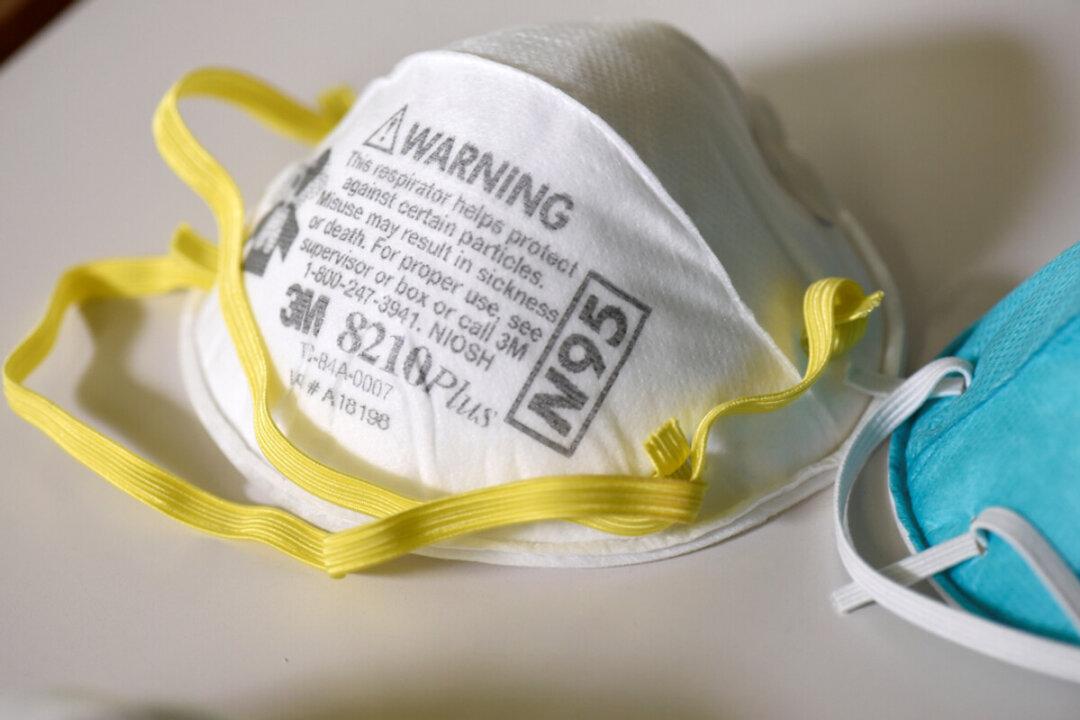The UK Health Security Agency (UKHSA) said on April 13 that it couldn’t find evidence whether N95 or similar medical-grade masks protect clinically vulnerable people from becoming seriously ill from COVID-19.
Unlike a regular loose-fitting surgical mask, an N95 respirator is designed to fit tightly to form a seal around the nose and mouth. It’s also very efficient in filtering airborne particles.





